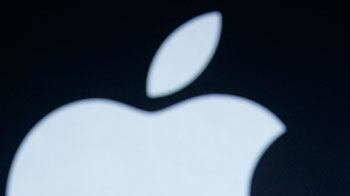
If Steve Jobs had a business card that spoke the truth, it would have two words: Brand Auteur. Auteurs use their dictatorial imaginations to create works of art. That’s how Steve was able to produce his dazzling stream of cherished miracles. And along with that came consumer loyalists as cult-like as the grad students who obsess over every frame of Citizen Kane.
Every corner of the Apple brand bent to Steve’s will: functionality, aesthetic, marketing, packaging. When the original iPod headphone jack didn’t deliver the reassuring click-sound Steve expected, he demanded the aural satisfaction, even when the product was done and baked. He has something few CEOs possess: taste.
The pleasure Apple’s products offer is visceral and erotic.
Of course, like all great auteurs, Steve made mistakes in pursuit of purity. For example, neither the iPod nor the iPhone have a removable battery—the philistine practicality would destroy the phone’s aesthetic. So we forgive the inconveniences and even outright failures: the pleasure Apple’s products offer is so visceral and erotic.
The irony is that Steve’s leave of absence comes at a moment when the economy is desperate for imagination-stoking products that will get out butts down to the mall. Where are these dopamine-inducing surprises going to come from? Certainly not from auteur-less companies who quiver at their own shadows, who stick everything in front of focus groups for validation. Steve is famously opposed to consumer research, saying "It's really hard to design products by focus groups. A lot of times, people don't know what they want until you show it to them.” He had a kind of love/hate relationship with consumers. Steve didn’t want to listen to them, just dazzle them; to teach them and show them the way. He knew that consumer testing leads to the very brand blandness that capsized Detroit.
But Apple supported Steve’s big bets, without the anodyne of “consumer feedback, because of a unique set of circumstances. Recall that Apple kicked Steve out—part of his mythic folklore, like Orson Welles losing control of the final cut of “The Magnificent Ambersons”—for John Scully. When Scully messed up, a parade of hapless skippers followed. When Jobs returned, the company didn't have much to lose.
A CEO-as-brand-auteur needs board support. But today’s boards are risk cowards. (I fear that the mendacity of Wall Street has poisoned the word risk, and all its necessity and glory, and turned it into a fatal epithet.) They just want the boxes checked and their decisions supported by conventional business logic, which is why the American economy is stuck with a generation of CEOs who are as far from brand auteurs as you can get. They’re professional managers, bloodless CEOS without any maniacal love of the business they’re running.
Take Carol Bartz, who was just named CEO of Yahoo. Like most CEOs, she sees her new job as kind of generic industrial challenge, saying: “Media versus technology, that's a lot of nonsense. I'm a technology person. I suspect I have a little brain power to learn to understand media. I suspect there are fantastic people here in the company and on the board [of directors] who can jumpstart my education."
She’s got it upside down. The reason that it’s hard to sit in a meeting today without hearing “we’ve got to be more like Apple” is that Steve led by example, and instituted design and development processes that sprung from his own mad perfectionism. He populated Apple with internal talent that work well within his auteur ambit, just like Woody Allen consistently works with the same cameraman, editor, and set designer.
It’s also a mistake to confuse brand auteur-ship with stereotypical micromanagement. Most micromanagement is arbitrary, a gazillion tiny insinuations that are checks on process or meaningless tweaks that have nothing to do with a brilliant end-result. I know about all the unauthorized biographies that talk about how difficult and imperious Steve can be, but it was always fueled by a creative vision rather than corporate liturgy.
Are there any other brand auteurs around? Martha started as one, but as she expanded her brand with deals like the Kmart license, it became diluted. (By contrast, Apple seems to have become even more concentrated over time.) Ian Shrager [Studio 54, Royalton Hotel] has auteur qualities, as do Danny Meyer [Union Square Café, Gramercy Tavern] and Eileen Fisher, but they are more in the business of replication than innovation. Charles Revson of Revlon, who created a category and famously walked around the office wearing different shades of nail polish was an early brand auteur.
I’m looking at a box that holds an iPod Classic. The structure emanates reverence for its contents. An image of the device is de-bossed on the cover; I rub my finger over it and the topology speaks to a fetish for detail. I lift the top. The fit is so tight that it makes a sound like an airtight container has been breached. The cardboard is preposterously thick—thicker than the wedding invitation of a Saudi sheik.
The device nests within, maximal in the minimal.
Steve is obsessed with packaging as part of the consumer experience; he pays close attention to the order of things, the way the product and then its accessories are revealed. As an auteur, he sees packaging as the opening credits, the start of the storytelling.
When I compare this sexy undressing to the insulting thoughtlessness of most packaging, I am convinced that Wall Street is right to quiver over the prospect of Apple without Steve. But it’s not just Apple’s stock that’s at risk. All of us who appreciate the frisson of an auteur in full possession of an idea and the means to control it, should feel diminished this week.
Adam Hanft is a decoder of the consumer culture and our branded planet. He blogs for The Huffington Post and FastCompany.com, and has been published extensively, including in The Wall Street Journal, Slate, Civilization, Radar, and the back-page column for Inc. He has appeared on CNN, the Today show, and many other media outlets. He is also the co-author of Dictionary of the Future. Adam also decodes the culture as founder and CEO of the marketing and branding firm Hanft Raboy.






